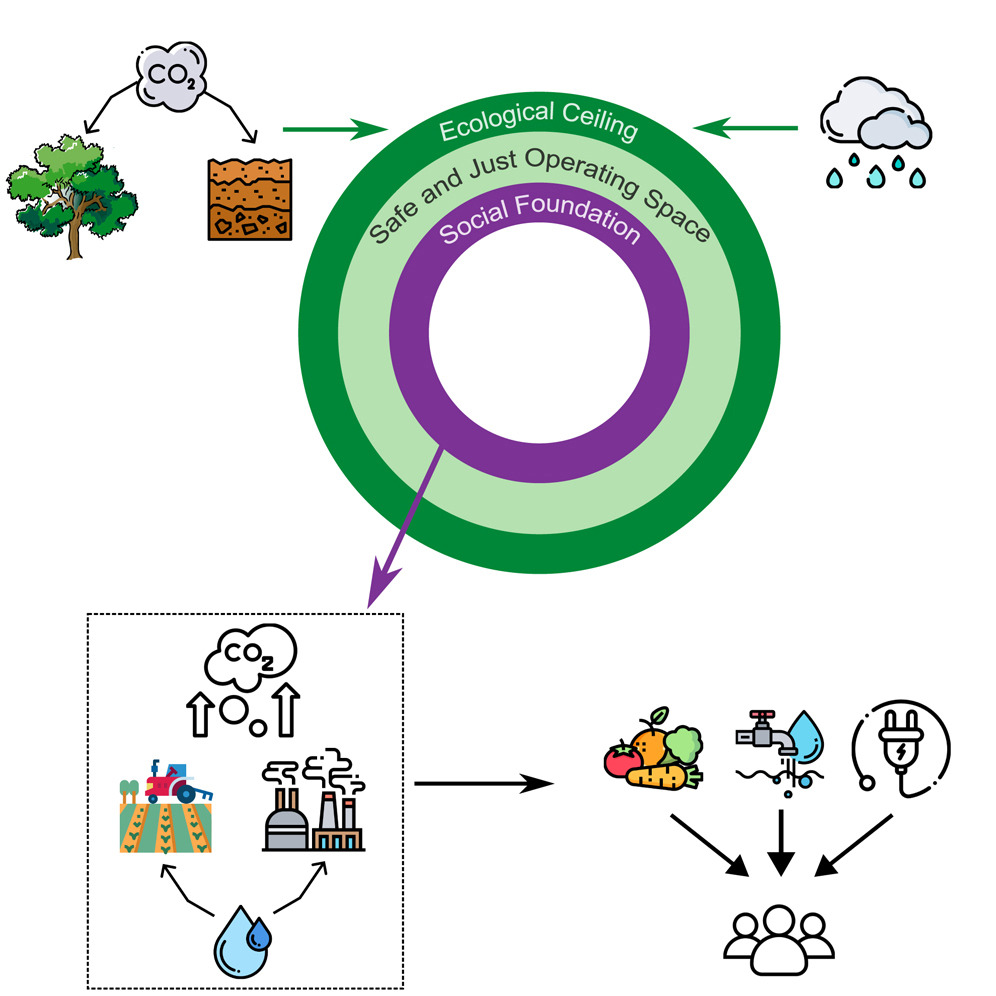Elsevier, Heliyon, Volume 9, April 2023
This study was designed to explore the relationship between Alzheimer's disease (AD) rates and socioeconomic conditions in 120 countries. We used mixed effect models to investigate the relationship between the rates of AD and socioeconomic data. This study is among the first studies to put forward statistical evidence of a significant association between AD and other dementias among the elderly and socioeconomic inequality. These findings could help to inform the policies to be designed to improve the quality of interventions for AD.
Elsevier, The Lancet Global Health, Volume 11, April 2023
Drinking water and sanitation services in high-income countries typically bring widespread health and other benefits to their populations. Yet gaps in this essential public health infrastructure persist, driven by structural inequalities, racism, poverty, housing instability, migration, climate change, insufficient continued investment, and poor planning.
Elsevier,
Mechanisms of Ageing and Development, Volume 211, April 2023
This paper applies stochastic process models (SPM) to study Alzheimer's disease (AD) using data on AD onset and longitudinal body mass index (BMI) trajectories, revealing that APOE e4 carriers are less resilient to deviations in BMI, with age-related declines in adaptive response and differences in allostatic load accumulation, thereby providing new insights into the connections between age, genetic factors, and risk factors in AD development and aging.
Elsevier,
Frontiers in Neuroendocrinology, Volume 69, April 2023
This review discusses the link between isolation, loneliness, and Alzheimer's Disease, and underscores the necessity of understanding and addressing these risk factors to develop successful prevention and treatment approaches.
Elsevier,
Mechanisms of Ageing and Development, Volume 211, April 2023
Growing evidence suggests that the gut microbiome plays a crucial role in Alzheimer's disease (AD) pathogenesis through the microbiota-gut-brain axis, with alterations in gut microbiome composition linked to increased intestinal permeability, blood-brain barrier impairment, and neuroinflammation, and that gut microbiome modulation may alleviate AD symptoms, serve as a preventive measure, and also address comorbidities like Type 2 Diabetes Mellitus (T2DM), with future research directions including fecal microbiota transplantation (FMT) and precision medicine.
Elsevier,
Frontiers in Neuroendocrinology, Volume 69, April 2023
This review explores the potential therapeutic applications of the orexin system, focusing on its role as a target for treating various pathological conditions, including psychiatric and neurodegenerative diseases, and highlights the development of suvorexant as an orexin agent approved for insomnia treatment.
Elsevier,
Neuroscience Letters, Volume 803, 23 April 2023
This article investigates the potential therapeutic effects of glutamic-oxaloacetic transaminase (GOT) in Alzheimer's disease (AD) by reducing glutamate concentrations in the hippocampi of mice, leading to improved neurological function, reduced β-amyloid protein levels, enhanced cognitive performance, increased neuron count and synaptic density, and altered protein expression, suggesting a promising treatment approach for early-stage AD.
Elsevier,
The Lancet Regional Health - Western Pacific, Volume 33, April 2023
This Article supports Sustainable Development Goal 3 by estimating the incidence and risk factors for vascular cognitive symptoms among first-ever stroke survivors in China, and shows an association of post-stroke cognitive impairment with age, education, and region (western China had higher rates of post-stroke cognitive impairment relative to other regions).
Elsevier,
Lancet Regional Health - Americas, Volume 20, April 2023
This Viewpoint supports Sustainable Development Goal 3 by discussing the effects of the FDA's approval of aducanumab, a treatment for early-stage Alzheimer's disease, despite its limited clinical benefit, as well as the decision of the Centers for Medicare and Medicaid Services to restrict coverage to individuals enrolled in clinical trials. The authors note that these decisions have led to a confusing landscape for patients with Alzheimer's disease.

